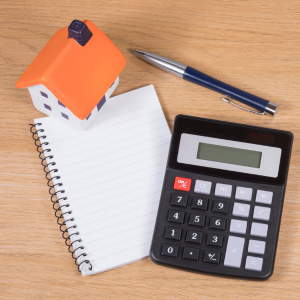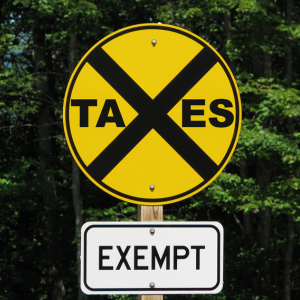
When selling a home in Georgia, knowing the implications of a capital gains tax will aid in maximizing your returns. The capital gains tax only applies to the profit made on the sale; thus, knowing how to calculate and minimize the capital gains tax will be beneficial. Different exemptions/rules apply when selling your primary residence compared to an investment property. This guide will address your capital gains tax concerns and help you make an informed home sale in Georgia that will be profitable regarding home sales and taxes.
Key Highlights
- Understand capital gains tax implications to maximize profit when selling a home in Georgia.
- Apply up to $250,000/$500,000 exemption for single/married owners on residential gains effectively.
- Perform strategic financial planning to reduce taxable gains using state and federal regulations.
- Incorporate selling expenses and improvements as deductible from capital gains.
- Timing the sale and tax advisory engagement can significantly ease tax liabilities.
Understanding Capital Gains Tax for Home Sellers in Georgia
Understanding capital gains tax intricacies is paramount for Georgia homeowners preparing to sell their house. The tax concerns the gains made from the sale of the house, defined as the sale price minus the adjusted basis of the house, which is the purchase price, plus certain improvements and transactional costs. Homeowners must understand these different elements as they will make estimates based on federal and state tax regulations.
The first step to effectively calculate your capital gains tax liability in Georgia is determining whether the gain is short- or long-term. Short-term capital gains, which result from property transfers held for one year or less, are taxed at a higher ordinary income tax rate. By contrast, longer-held assets are taxed at a reduced rate; thus, longer asset ownership is more beneficial from a tax perspective. Not all property owners will understand or appreciate these rules immediately. Most people sell their property in a rush, without considering the tax implications. The joy of money in hand will cloud their judgment, violating the three most essential rules in tax filing.
Furthermore, taxpayers may obtain valuable exemptions, resulting in a homeowner owing little to no capital gains taxes on a sold property. For instance, people may exclude up to $250,000 of profit on a property that is their primary residence, $500,000 for married couples that file taxes jointly, if they owned the property for 2 of the previous 5 years, with the primary residence exclusion. These exemptions, paired with intelligent records during the property’s ownership and improvement periods, allow sellers in Georgia to liquidate their properties, pay little to no taxes, and retain most of the equity they have gained.
Contact us today for personalized guidance and a tailored offer. Our team can help you understand your capital gains obligations, identify available exemptions, and develop strategies to maximize your profit while minimizing tax impact when selling your Georgia home.
What is Capital Gains Tax?
Capital gains tax is levied on the profit realized from selling or exchanging certain assets, such as property and real estate. Specifically, when you sell a property such as your home, the capital gains tax applies to any increase in the property’s value compared to when you initially bought it. Simply put, this tax is the government’s due on the profit, or gain, from the sale. Such profits are taxable gain and must be reported under capital income.
The tax comes into play only when you sell the asset, hence the gain is “realized”. For example, if you’ve owned a property in Georgia for several years, its value has likely appreciated. The difference between the original purchase price and the selling price can cause potential gains in tax liability. This becomes an income aspect of your tax return. Recognizing what constitutes a gain capital is key to calculating your capital gains tax. In most scenarios, you may incur a capital gains tax if you sell the property for more than what you initially purchased.
Capital gains taxes are divided into short-term and long-term classifications. When a property is owned for a year or less, the gains are taxable at ordinary income tax brackets, which is considered short-term. If the property is held for more than a year, long-term capital gains apply and are usually at a reduced effective rate. This difference affects your home-selling decision and your overall tax strategy. Georgia homeowners benefit from understanding the reason behind the different rates.
In Georgia, capital gains tax treatment also mirrors federal tax treatment, thus ensuring your income speaks coherently about the gains tax you owe. Well-developed concepts and tax accountability aid sellers tremendously. They help you understand the selling process and associated taxes. Determining tax rates and classifying your real estate transaction helps reduce any surprises from a tax liability.
How Capital Gains Tax Applies to Home Sales in Georgia
Potential home sellers need to consider how capital gains tax is implemented on residential housing transactions in Georgia. The state and federal governments apply payments on gains from property sales, meaning there are gains taxes at both the state and federal levels. It is essential to understand both levels, as they will influence the overall financial outcome. The gain is taxed based on the selling price minus the property’s adjusted basis, which includes the purchase price, the improvements, and certain real estate expenses. Since tax liability is based on gains, claims even as small as real estate expenses will make a difference in taxes owed on gains.
Most sellers will find tax liability on gains from a residential sale easier to manage within the federal provisions. For instance, gain exclusions apply from the sale of a primary residence: individuals can exclude gains of $250,000, or $500,000 for married couples filing jointly, if the home is owned and occupied for at least two of the five years before the sale. The application of such exclusions will have a substantial effect on the selling price.
Within the State of Georgia, and because it adheres to the federal tax regulations, it becomes possible to engage in 1031 tax exchanges, which allow the deferral of capital gains taxes and the reinvestment of capital. Although this provides some ease on the tax pressure and the tax consequences are positive in the long run, complex and careful tax planning would be needed. For capital gains tax purposes, Georgia home sellers are most likely to enjoy maximization and better tax exposure. Some degree of regulatory foresight, in combination with well-thought-out exemptions, should reduce the transactional complexity and enhance the commercial rationality of the transaction during the sale.
Yellow Card Properties offers expert guidance to help Georgia home sellers navigate capital gains tax efficiently. We provide tailored strategies to reduce taxable gains, leverage exemptions, and explore 1031 exchanges for tax deferral—helping you maximize returns and achieve a smoother, more profitable sale.
Determining Your Tax Liability

Calculating your tax liability when selling your home in Georgia needs to be carefully understood. Home sellers must account for federal and state capital gains taxes and other variables that might change. Estimating your taxable gain as accurately as possible is essential to know how much of your profit will be taxable and whether any will be exempted.
The most important factors that affect your taxes when selling a home include how long you’ve owned it, whether it’s your primary residence, and your marital status for tax purposes. For example, short-term gains (from homes owned less than a year) are taxed at your regular income rate, which is usually higher than the long-term capital gains rate.
If you inherited the home, the tax rules work a little differently. In most cases, you get what’s called a “stepped-up” cost basis. That means the home’s value for tax purposes is reset to its fair market value at the time you inherited it—not the amount the previous owner originally paid. This can make a big difference, because you’ll only owe capital gains tax on any increase in value that happens after you inherit the property.
Since Georgia generally follows federal tax guidelines, both systems work together to determine what you ultimately owe.
Having a good grasp of these rules helps you plan ahead. By tracking home improvements, checking what exemptions or exclusions you qualify for, and timing your sale wisely, you can reduce surprise tax bills and keep more of your profit when you sell.
Calculating Capital Gains and Tax Liability
One of the most important components of selling property in Georgia includes estimating the capital gains tax and the flow of the property. Capital gains taxes are charged on profits from selling the property when the home’s selling price exceeds the purchase price. The gains incurred are taxed depending on whether the gains were for a short or long period. If the property was owned for a year or less, the profits are considered short-term and taxed at the marginal tax rate, which is as high as 37% at specific tax brackets. Long-term, and therefore lower tax rate, gains are taxed at 0%, 15%, or 20% depending on the taxpayer’s income and the federal and Georgia tax brackets.
Accurate calculation starts with determining your property’s adjusted basis. Improvements, fees, and other adjustments to the purchase price, for instance, will allow you to subtract the adjusted basis from the selling price to calculate the capital gain. Exemptions are also necessary; for example, single homeowners may exclude up to $250,000, and married couples up to $500,000, of gains if the home was their primary residence for at least two of the past five years.
Reducing taxes further is possible with strategic financial planning. For instance, you may choose to sell your property during the period your income will fall within a lower tax bracket, and a 1031 exchange will also allow you to defer taxes through the purchase of similar properties. With proper planning and strategic resting periods, homeowners will be positioned to minimize their tax burdens and maximize their tax-aimed profits.
Factors Influencing Your Tax Rate

Identifying the factors that impact your tax rate is just as important as calculating your capital gains. In Georgia, several elements can alter your final tax outcome. The duration of home ownership is key—short-term gains are taxed as ordinary income, often at higher rates, while long-term gains qualify for lower, more favorable rates. Your overall income in the year of sale also matters; higher earnings can raise your tax bracket and increase your capital gains tax, while lower income years may reduce it. Since Georgia generally follows federal tax structures, understanding how both systems interact is vital for both homeowners and investor home buyers in Georgia.
Taxable gains can also be constrained through certain deductions and credits. In the case of capital improvements, passed statutes enhance the home’s adjusted basis and lower the residence’s taxable amount. Exemptions, such as the $250,000 exclusion for singles and $500,000 for married couples, also help. Financial strategists in Georgia facilitate the attainment of goal-oriented compliance and profit plans, thus allowing home sellers in Georgia to enjoy a more tax-compliant home sale.
To seamlessly continue and enhance this discussion on factors influencing your tax rate, let’s delve into actionable strategies:
- Analyze the property ownership duration to determine optimal tax savings selling periods.
- Evaluate your annual income projections and their impact on your property’s capital gains tax.
- Investigate property improvements that qualify as deductions to lower taxable gains.
- Assess eligibility for exemptions like the $250,000 or $500,000 capital gains exclusions.
- Consider potential state-specific deductions and how they align with federal regulations.
- Consult with financial planning experts to capitalize on tax-saving opportunities.
These insights will help you strategically manage your tax obligations and optimize financial outcomes when selling your property in Georgia.
Strategies to Mitigate Your Capital Gains Tax
Georgia homeowners need to consider capital gains tax ramifications when selling property. Sellers can reduce tax liability by understanding capital gains tax exemptions and how federal and state taxes interrelate. Georgia has generally adopted capital gains tax federal guidelines; however, state-specific nuances will most likely apply to gain calculations and the available deductions. Recognizing qualifying exemptions filed as early as possible, such as a primary residence exclusion, will allow homeowners to reduce or, in some circumstances, eliminate taxable gains, thus shielding most of the profit.
Tax planning goes beyond exemptions. Homeowners will need to devise a strategy based on timing, the type of documentation in their possession, and reinvestment plans based on the state of the Georgia economy. Improvements made to a property and documented transaction costs will help determine ownership periods to prepare a cost basis and assist in accurately determining and alleviating gains to taxes. Engaging a tax practitioner or financial planner familiar with Georgia property taxes will help draw a compliant plan that minimizes taxes. Long-range financial strategies will assist homeowners in planning and selling their property.
Exemptions Available to Georgia Home Sellers

Georgia offers several exemptions that can significantly reduce home sellers’ capital gains tax burden. The most common is the federal exclusion of up to $250,000 for single homeowners and $500,000 for married couples filing jointly. To qualify, the home must have been the seller’s primary residence for at least two of the past five years. Using this exemption effectively can leave much of your sales profit untaxed, resulting in substantial savings.
In addition to the primary residence exclusion, additional savings can be accomplished through a solid understanding of local taxes in Georgia. Well-documented modernizations that improve the home value can be deducted and reduce taxable gains. Not to mention, some state-level programs also provide additional reliefs that follow the federal structure. A Georgia tax adviser can help identify these “opportunities” and design your sales to be tax-efficient.
Utilizing 1031 exchanges is another strategy that may help sellers, particularly those looking to reinvest in comparable investment properties. This strategy will defer, but not eliminate, taxes, thereby allowing them to continue growing capital. This will also help preserve capital for tax reasons for homeowners who have converted a primary residence into a rental and then sell the property afterward.
Using the Georgia Capital of Tax Laws to Reduce Liability
Georgia’s capital tax laws may be consistent with federal regulations, but provide ways for tax savings with proper planning to alleviate your burdens. Knowing how the GAAP federal long-term and short-term capital gains taxes impact your taxes in Georgia is instrumental. Long capital gains are taxed at a lower rate and will benefit from federal limits, but they can be optimized with state-specific provisions in Georgia.
Taking advantage of Georgia tax laws requires thinking from both state and federal perspectives. This is especially true for sellers encouraged to time their disposition to tax advantageous periods, i.e., holding a home for over a year to be eligible for low long-term rates and selling during a lower income year to reduce tax exposure.
In Georgia, tax credits and deductions—especially for energy-saving and green upgrades—will help reduce your gains tax. Georgia-specific and federally applicable credits can lead to savings, especially when working with tax experts.
These insights and strategic deferral methods, like retirement plans or educational savings plans during the year of sale, can help lower taxable income even more. Careful planning and expert tax advice mean that homeowners in Georgia can alleviate the capital gains tax burden.
Navigating the Sale Process
Since selling a home in Georgia means paying capital gains taxes afterward, selling a home means much more than finding a buyer. Homeowners looking to improve their financial outcomes must determine which portions of their home sale will be taxable and which portions will be exempt. The more significant portions will be the appreciation of the home’s value, how long the home was owned, and if the home was a primary residence. Knowing how much of the gain will be taxable will help determine the selling price. Making home improvements before selling will help gain more favorable and aggressive appraisals, and the organized documentation will help in the financial planning.
To understand the taxable gains and Georgia capital gains taxes to lose the least amount of money, a tax professional or financial planner with knowledge of the Georgia tax code will help create a plan to maximize the selling price and minimize the capital gains taxes. When planning, the expenses that will likely be less than the Georgia capital gains taxes, the selling price, and all improvements made to the home will be instrumental. A plan will help eliminate tax problems that make Georgia cash sales more complex and less profitable. Strong tax planning will help ensure a more profitable and less stressful transaction. `
Steps to Prepare for Selling Your Home and Managing Gains Taxes
Preparing your home for sale in Georgia requires a strategic approach, especially considering capital gains tax implications. The following steps can help you manage taxes effectively while maximizing your property’s market potential. Start with an accurate appraisal of your home’s value. Understanding market conditions and comparable sales in Georgia will guide you in setting a competitive price. Consult a financial advisor to create a gains tax plan—assessing your potential taxable gain early helps avoid financial surprises later. Suppose you’re looking for a faster, hassle-free transaction. In that case, you can also work with a company that buys houses in Richmond Hill and surrounding cities in Georgia, offering quick closings and cash offers without the complexities of traditional sales.
Enhancing your home’s appeal can also impact your tax liability. Simple upgrades like fresh paint or landscaping boost market value and can be added to your property’s adjusted basis, reducing taxable gains. Keep detailed records of all improvements, which can be deducted before calculating your gain. Take advantage of exclusions such as the $250,000 exemption for individuals ($500,000 for married couples) on principal residences to lower taxes.
Timing your sale is equally important. Holding your property for over a year qualifies you for lower long-term capital gains rates. Selling during a year with lower income can also reduce your tax burden. Lastly, consult local tax experts familiar with Georgia’s real estate laws to ensure compliance and maximize your financial return.
Common Selling Expenses and Tax Implications in Georgia
Selling a home in Georgia involves several expenses affecting your direct costs and capital gains tax calculations. While not purely out-of-pocket losses, these selling costs play a key role in financial planning by reducing taxable gains. Typical expenses include real estate agent commissions—typically 5% to 6% of the sale price—which directly impact your net proceeds but are deductible from capital gains, lowering your overall tax liability.
Also consider repair and staging costs. Though often necessary to improve market appeal, they can be categorized as capital improvements if properly documented, increasing your property’s adjusted basis and reducing taxable gains.
Other deductible expenses include title insurance, legal fees, and closing costs—all of which help minimize the taxable gain reported on your return. Understanding these tax implications enables more accurate financial planning and better control over your final profit.
Finally, integrating capital gains tax planning into your broader financial strategy is essential. Consulting a tax or financial advisor can help you leverage Georgia-specific exemptions and federal tax provisions, ensuring you retain more home sale proceeds.
| Aspect | Key Points | Impact | Considerations |
|---|---|---|---|
| Managing Gains Taxes | Understand capital gains tax rules; Calculate potential taxes on the sale | Potential reduction in net profit | Consult a tax professional; Utilize legal exemptions when possible |
| Home Improvements | Document all improvements made over the years | Increase in home value; Potential reduction in taxable gains | Prioritize cost-effective renovations; Keep detailed records and receipts |
| Expenses and Deductions | Account for selling costs and closing fees | Decrease in the reportable gain amount | Identify all eligible expenses; Ensure accuracy in deductions |
| Strategic Planning | Time the sale for market conditions; Evaluate future financial needs | Maximized sales profit; Aligned financial goals | Consider economic forecasts; Plan around significant life events |
This table highlights how strategic financial and tax planning can optimize outcomes when selling a home in Georgia. Understanding the nuances of managing gains taxes, evaluating the effects of home improvements, and engaging in strategic planning are crucial steps in ensuring a successful sale.
Understanding capital gains tax is crucial for anyone selling a house in Georgia. By familiarizing yourself with the exemptions and consulting with a qualified tax advisor, you can ensure a smooth home-selling experience while potentially preserving more of your profits. Proactive planning and organization can alleviate financial stress and optimize your returns. Engaging with financial professionals specializing in real estate taxation might be invaluable for those looking for more personalized guidance. For further resources, consider downloading our comprehensive guide on navigating taxes when selling your home in Georgia.
FAQs:
What is capital gains tax, and how does it apply to home sales in Georgia?
Capital gains tax is a tax on the profit from selling an asset, such as a property. In Georgia, it applies to the difference between the selling price of the home and its original purchase price, accounting for improvements and selling expenses.
Are there any exemptions for capital gains tax when selling a home in Georgia?
Yes, you may exclude up to $250,000 of capital gains (or $500,000 if married filing jointly) from your taxable income if you meet certain conditions, such as having lived in the home for at least two of the last five years.
How can selling expenses and home improvements impact my capital gains tax?
Selling expenses and home improvements can be deducted from the selling price before calculating your capital gains. This reduces your taxable gain, potentially lowering your capital gains tax liability.
What is the difference between short-term and long-term capital gains tax rates?
Short-term capital gains tax applies to assets held for a year or less and is taxed at your ordinary income rate. Long-term gains, for assets held longer than a year, are taxed at reduced rates (0%, 15%, or 20%) based on your income level.
How can I strategically minimize capital gains taxes when selling my home?
You can minimize capital gains taxes by timing your sale for more favorable tax rates, claiming all eligible exemptions and deductions, and possibly utilizing strategies like a 1031 exchange to defer taxes. Consulting a tax advisor is recommended.
Do you need to sell your house? Sell it quickly, avoid costly repairs, or prefer a hassle-free sale. Yellow Card Properties is here to help. We offer fair cash offers, handle all the details, and make the process seamless. Ready to sell or have questions? Call us at (904) 539-4420 for a no-obligation offer. Get started today!
Helpful Georgia Blog Articles
- Navigating House Sales Before Divorce In Georgia
- Maximize Your Profit: Selling A House As-is In Georgia
- Effective Strategies For Selling A Hoarder House In Georgia
- How To Successfully Sell Your Home During Foreclosure In Georgia
- Strategies For Selling A House With Code Violations In Georgia
- How to Sell Your House Rent-to-Own in Georgia
- Capital Gains Tax After Selling a House in Georgia
- Can I Switch Real Estate Agents in Georgia?
- How To Sell A Condemned House in Georgia
- Can An HOA Foreclose On A House in Georgia
- For Sale By Owner Buyers Agent Commission in GA
- Can You Live In A House During Probate in GA
- Taxes When Selling An Inherited House in GA

